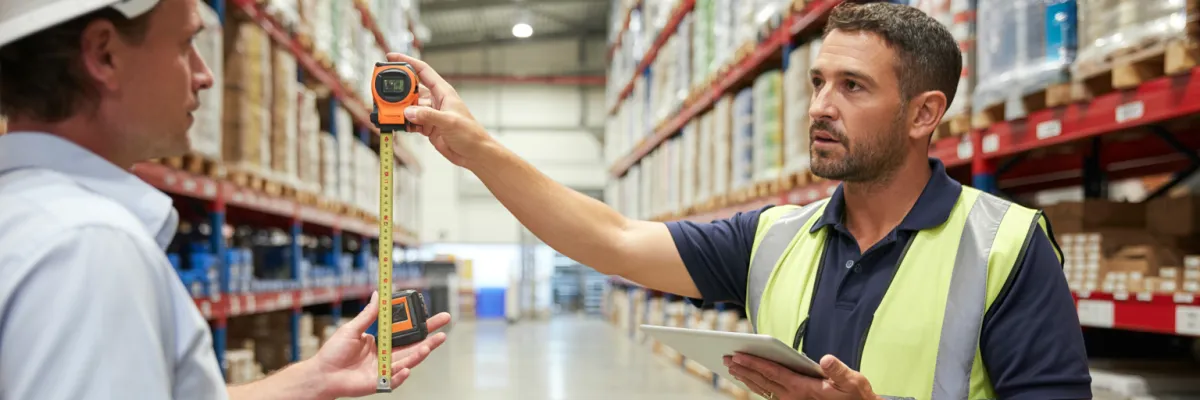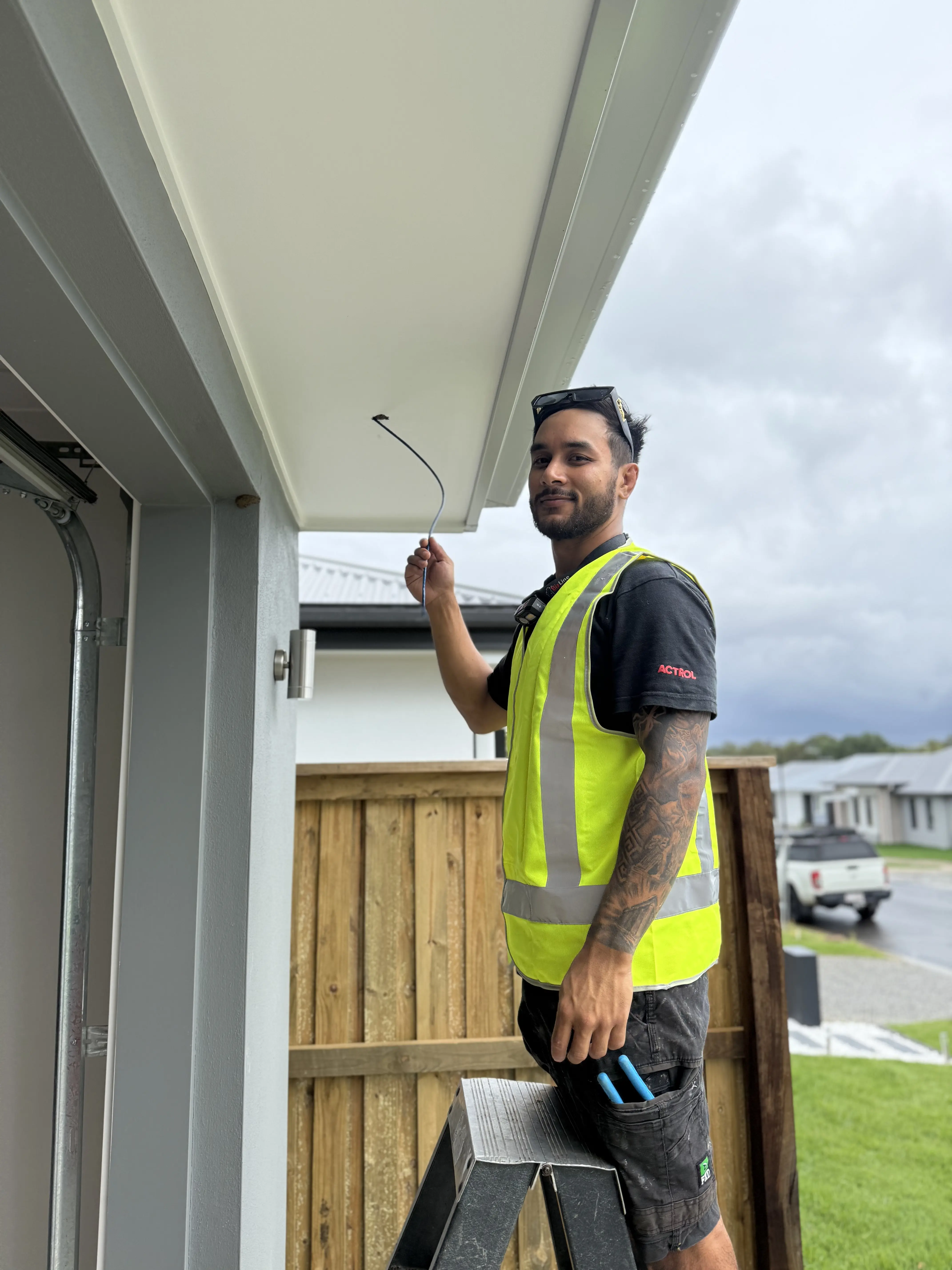
Free Business Security Camera Consultation: What Brisbane Business Owners Need to Know
You've finally decided to install security cameras for your Brisbane business. You book a consultation expecting clarity, but instead you're hit with confusing acronyms (IP vs. analog? 4K vs. 1080p?), wildly different quotes, and the nagging feeling you're either being oversold or under-protected.
Here's what most business owners don't realize: a free business security camera consultation is your opportunity to make an informed decision—not just accept whatever system a sales rep recommends. Whether you're protecting a warehouse in Eagle Farm, a retail shop on Queen Street, or an office in South Brisbane, the right consultation should educate you, not confuse you.
In this guide, you'll discover:
The 12 essential questions every Brisbane business owner should ask during a business security camera consultation
Red flags that indicate you're dealing with the wrong installer
How to compare quotes accurately (hint: cheapest rarely means best value)
Brisbane-specific considerations like climate durability and Queensland privacy compliance
By the end of this article, you'll walk into your next consultation as an informed buyer—confident, prepared, and ready to make the right investment in your business security.
Why a Proper Business Security Camera Consultation Matters
A Fortitude Valley restaurant owner—let's call him James—rushed into a CCTV installation after a break-in. He went with the first quote at $4,500. Three months later, his cameras couldn't capture faces clearly. When internet went down during a storm, the system stopped recording. The installer? Unreachable.
James paid another installer $9,200 to rip everything out and start over. That's $13,700 total—nearly triple what a proper system should've cost.
According to the Australian Bureau of Statistics, commercial break-ins cost Brisbane businesses an average of $12,000 per incident. But a failed security system can cost even more—wasted investment, reinstallation costs ($8,000-$15,000), business downtime, and ongoing anxiety knowing you're not protected.
What Makes Commercial CCTV Different from Residential
Commercial security isn't just bigger home systems. The requirements are completely different:
Legal compliance comes first. Your business needs to comply with the Queensland Privacy Act, provide proper employee notification, and display required signage. A proper consultation covers these obligations.
Insurance considerations matter more. Many commercial policies have specific requirements for camera resolution, storage duration, and coverage areas. Miss these and claims might not pay out.
Coverage complexity is higher. You've got inventory, cash handling, employee zones, customer spaces, loading docks—each needing different camera types and resolutions.
Evidence quality requirements are higher. Business footage might end up in legal proceedings. You need admissible evidence with clear identification, proper timestamps, and minimum resolution standards.
A quality business security camera consultation prevents costly mistakes by addressing your specific commercial needs.

How to Prepare for Your Consultation
Document Your Security Vulnerabilities
Take 30 minutes to walk your premises. Here's what to look for:
Entry points—every single one. Front door, back door, loading dock, that door employees prop open. Note lighting conditions.
High-value areas—inventory storage, cash registers, expensive equipment, server rooms.
Blind spots—corners you can't see, gaps between buildings, back delivery areas.
Incident history—previous break-ins, theft locations, problem areas.
Traffic patterns—where employees and customers walk, areas you rarely check.
Write this down. Take photos. This turns a generic consultation into a customized solution.
Gather Essential Information
Bring to your consultation:
Floor plans or sketches showing your layout
Internet connection details (NBN speed, provider, reliability)
Existing security measures (alarm systems, old cameras)
Insurance policy requirements
Employee and customer counts
Operating hours and access patterns
Keep your budget range to yourself initially—let them recommend what you need first, then discuss pricing.
Define Your Security Goals
Be specific about what you're trying to achieve:
Theft prevention—external break-ins, employee theft, or shoplifting?
Employee accountability—safety protocol verification, access documentation
Customer safety—liability protection, incident documentation
Remote access—multi-location monitoring, after-hours checking
Evidence quality—footage that holds up in legal proceedings
Write down your top three goals ranked by importance.
The 12 Essential Questions to Ask During Your Consultation
1. "What Camera Resolution and Type Do You Recommend for My Business?"
Resolution determines what you actually see. 4MP cameras are the commercial standard—clear enough to identify faces from 20-30 feet. 2MP works for general "something happened" footage. 4K gives incredible detail but costs more and needs massive storage.
Camera types matter: bullet cameras (outdoor, weatherproof, visible deterrent), dome cameras (ceiling-mounted, less obvious), PTZ cameras (pan-tilt-zoom for large areas, more expensive).
For Brisbane, outdoor cameras need IP66 or IP67 weatherproof ratings minimum. Our humidity and storms destroy cheaper cameras within 18 months.
Red flag: If they push one camera type for every area, they're not consulting—they're selling.
2. "How Much Storage Do I Need and What Are My Options?"
Commercial standard is 30 days retention. Why? You might not discover incidents immediately—employee theft happens gradually, inventory discrepancies surface weeks later.
Eight 4MP cameras recording 24/7 for 30 days needs 6-8 terabytes of storage.
Local NVR (Network Video Recorder): One-time cost, no monthly fees, works when internet is down. Vulnerable to theft, you're responsible for drive failures.
Cloud storage: Accessible anywhere, automatic backups, can't be stolen. Monthly fees forever, requires reliable internet (Brisbane NBN can be sketchy).
Many Brisbane businesses do hybrid—local storage for immediate access, cloud backup for disaster recovery.
Ask: "What happens when the hard drive fails?" Drive replacement should be covered in warranty.
3. "Can I Access the System Remotely and How Easy Is It?"
Ask the consultant to demonstrate the mobile app during your consultation—actually pull up footage right there. How quickly does it load? Can you easily switch cameras?
Good systems let you create different permission levels. Your manager views footage but can't delete. You control everything. Part-time staff access only certain cameras during shifts.
Red flag: If they can't demonstrate the app during consultation, expect frustration after installation.
4. "What Happens If My Internet Connection Fails?"
Brisbane's NBN goes down during storms. Your security needs to work anyway.
Local backup recording is non-negotiable. Cameras should continue recording to the NVR even when internet is down. Some cheap cloud-only systems stop recording entirely—unacceptable.
Ask specifically: "If my internet goes out right now, do the cameras keep recording?" The answer must be yes.
Battery backup systems (UPS) keep your system running 2-4 hours during power outages. For Brisbane storm-prone areas, this matters.
5. "How Will These Cameras Perform in Brisbane's Climate?"
This question separates Brisbane-experienced installers from interstate companies who don't understand Queensland weather.
6. "What's Your Installation Timeline and Process?"
Small office (4-6 cameras): one day. Retail store (12-16 cameras): 2-3 days. Warehouses (20+ cameras): up to a week.
Ask about business disruption—power shutoffs, drilling, customer impact, noise levels. Many Brisbane installers offer after-hours installation to minimize disruption (costs more but worth it).
Who does the actual work? In-house employees or subcontractors? You need to know who's in your building and who's accountable.
Testing and handover should be thorough—every camera tested, recording verified, remote access checked. Don't sign off until you've personally verified everything works.
7. "What Training and Documentation Will You Provide?"
Quality installers include training for 2-3 staff members for an hour or more, covering: viewing live footage, searching playback, exporting footage, adding users, basic troubleshooting.
Better installers provide customized documentation (10-15 pages with your actual camera layout and login credentials) plus quick reference guides plus video tutorials.
Red flag: "It's intuitive, you won't need training" often means "we don't want to invest time in proper handover."
8. "What's Included in Your Warranty and What's Not?"
Equipment warranty should be minimum 3 years for commercial installations. Labor warranty should cover 1-3 years.
Ask about response times for warranty claims. Next-business-day response should be standard. Do they keep parts in stock or need to order them (meaning days without coverage)?
Red flag: Vague warranty terms or reluctance to detail coverage means they don't stand behind their work.
9. "What Ongoing Support and Maintenance Do You Offer?"
Professional installers commit to specific response times: "We respond within 4 business hours" not vague "we'll get back to you."
Ask about after-hours emergency support. What if your system fails Saturday night?
Preventive maintenance (annual visits to clean lenses, check connections, update firmware) extends system life. Ask if they offer maintenance packages.
10. "Are You Properly Licensed and Insured?"
QBCC license verification is mandatory in Queensland. They should provide their license number willingly. Verify it at the QBCC website—takes 30 seconds.
Unlicensed electrical work voids your building insurance. If an unlicensed installer causes an electrical fire, you're personally liable.
Public liability insurance should be $10 million minimum. Ask to see their certificate of currency proving current coverage.
No license, no consideration. Period.
11. "Can You Provide References from Similar Brisbane Businesses?"
Ask for 3-5 references from businesses similar to yours—similar size, industry, security needs.
When calling references, ask:
Installation experience quality?
Ongoing support responsiveness?
System performance as promised?
Any unexpected costs?
Would you choose them again?
Red flag: Can't provide verifiable references from similar Brisbane businesses.
12. "What's the Total Investment Including All Costs?"
The quote should itemize every component: cameras (by model and location), NVR, cabling, power supplies, labor, programming, training.
Hidden costs to ask about:
Council permit fees
Additional cabling for difficult runs
Electrical upgrades
Weekend/after-hours installation premiums
Ongoing costs:
Monitoring fees
Maintenance contracts
Cloud storage subscriptions
Software license renewals
Total cost of ownership over 5 years gives the real picture. A system costing $8,000 upfront with no ongoing fees beats a $6,000 system with $100 monthly cloud fees.

Red Flags During Your Consultation
Pressure Tactics and Limited-Time Offers
"Sign today for 20% off" is manufactured urgency. Quality installers understand security requires consideration time.
Reluctance to provide written quotes means no accountability. Everything should be detailed, itemized, in writing.
Professional behavior: They provide detailed quotes, encourage review time, answer follow-up questions, provide references without hesitation.
Vague or Evasive Answers
Watch for:
Can't explain technical specs clearly
No clear warranty details
Unwilling to provide references
"Trust me" without evidence
Dodging licensing/insurance questions
Can't demonstrate remote access during consultation
Professional consultants answer directly, provide evidence, demonstrate features, welcome tough questions.
Conclusion
Walking into your next business security camera consultation prepared transforms you from someone who might get oversold into an informed buyer making strategic decisions. By asking these 12 essential questions, spotting red flags, and understanding Brisbane's unique requirements, you're equipped to invest in security that actually protects your business.
The difference between a system that works and one that fails comes down to consultation quality. You now know what thorough consultations look like, which questions separate professionals from salespeople, and how to compare quotes beyond just price.
Your business deserves better than cookie-cutter solutions sold by high-pressure tactics. You deserve an installer who listens, designs appropriate solutions, and commits to long-term support.
Ready to experience what a proper business security camera consultation should be? Book your free assessment with Brisbane's highest-rated commercial security specialists. We'll answer every question, provide transparent quotes with no hidden fees, and deliver security that actually protects what you've built. Email us: [email protected]


